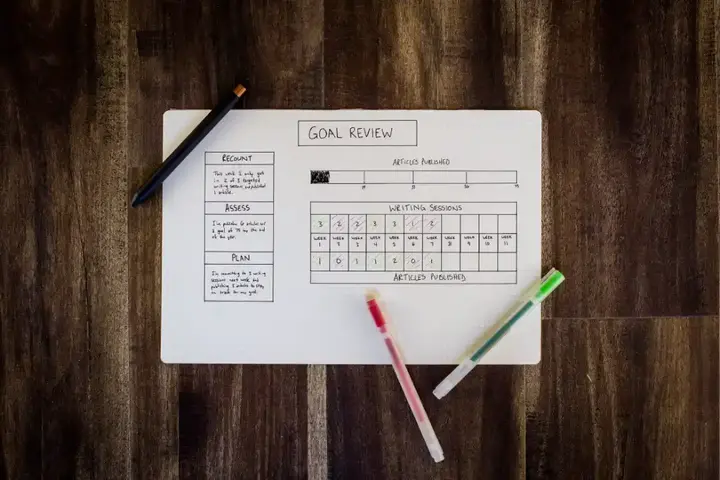Habits that make you smarter

In the ever-evolving pursuit of personal excellence, the power of habit cannot be overestimated. Our daily routine is the foundation on which we build our lives, shaping our future with each repetitive action. This article delves into the transformative potential of cultivating habits that can make us smarter. It's not about innate talent or intelligence, it's about consistent and deliberate practices that can enhance our cognitive abilities and broaden our intellectual horizons. From neural connections in our brains to social interactions that enrich our perspectives, we'll explore how certain habits can be triggers for a sharper and more resilient mind.
Show key points
- Building consistent positive habits plays a crucial role in enhancing intelligence and fostering cognitive growth over time.
- Engaging in regular physical exercise improves brain health by enhancing memory, reducing stress, and increasing blood flow to the brain.
- Practices like mindfulness and meditation significantly boost focus, working memory, and cognitive flexibility.
- ADVERTISEMENT
- Learning new skills stimulates the brain’s adaptability and fosters the creation of new neural connections.
- A nutritious, balanced diet supports mental performance and helps reduce the risk of cognitive decline.
- Quality sleep is essential for memory consolidation, learning, creativity, and emotional regulation.
- Social interactions and meaningful relationships strengthen cognitive functions and emotional intelligence.
1. Do regular physical exercise
Recommend

Physical exercise isn't just about keeping the body healthy; it also plays a crucial role in brain health. Aerobic exercise, in particular, has been shown to increase the size of the hippocampus, the area of the brain associated with verbal memory and learning. Regular physical activity promotes cardiovascular health, which is beneficial for the brain, improves blood flow to the brain, reduces inflammation, and reduces stress hormone levels.
2. Practice mindfulness and meditation

Mindfulness and meditation have profound effects on cognitive performance. These practices are associated with improvements in executive function and working memory. Even short sessions of mindfulness meditation can significantly enhance learning from positive surprises and enhance cognitive flexibility.
3. Learn new skills

Learning new skills can change your brain physically and functionally. It stimulates the formation of neurons – the creation of new neurons – and enhances brain flexibility, which is critical to recovery from injury and aging. Adopting new activities that require constant thinking, learning, and practice can improve cognitive skills.
4. Maintain a healthy diet

A balanced diet rich in fruits, vegetables, whole grains, lean protein and healthy fats supports cognitive function and may reduce the risk of cognitive decline. Conversely, diets rich in processed foods, saturated fats and sugars may negatively affect the brain.
5. Get a good sleep

Sleep is vital for cognitive processes such as memory enhancement, enhanced learning, enhanced creativity, and emotional regulation. Lack of sleep can lead to problems focusing on tasks and thinking clearly.
6. Engage in brain training activities

Brain training activities such as puzzles, games, and problem-solving exercises can increase cognitive abilities. These activities challenge the brain and can lead to improvements in areas such as attention, problem solving, and flexibility in thinking.
7. Development of social bonds

Healthy social connections are associated with overall health and brain health. Socialization may help keep our brains flexible and boost brain flexibility. Engaging in meaningful social interactions can enhance cognitive abilities and emotional intelligence.
8. Set and review goals

Setting goals and regularly reviewing progress can help maintain focus and motivation. This habit encourages continuous learning and self-improvement, which are essential for intellectual development. Goals are the goals to which we direct our efforts, and they play an essential role in developing skills in various aspects of life.
9. Read books and articles

Reading is a powerful tool for increasing intelligence. It exposes individuals to new ideas, enhances vocabulary, and improves memory and comprehension skills. Reading literature can also improve emotional intelligence and empathy. Dealing with a variety of genres and topics can provide a broader understanding of the world and stimulate the brain in different ways, leading to increased cognitive flexibility.
10. Set screen time

Excessive screen time can be detrimental to cognitive function. Studies have found a clear link between disturbed screen use and decreased cognitive performance. Reducing screen time and replacing it with learning activities or hobbies can lead to improved concentration and mental clarity6. It's important to balance digital consumption with activities that promote brain health.
11. Play a musical instrument

Learning to play an instrument has been associated with enhanced cognitive abilities. It requires coordination, memory and concentration, all of which are beneficial to the brain. Playing a musical instrument can improve memory, problem-solving skills, and increase creativity. It also helps to increase focus and attention, providing mental exercise that can benefit individuals of all ages.
12. Meditation

Meditation has been shown to improve attention, recognition ability and working memory. It also provides emotional benefits, which can indirectly support cognitive function. Practicing meditation regularly can boost cognitive performance and reduce mental fatigue during difficult tasks.
13. Drink coffee and green tea

Moderate consumption of coffee and green tea can boost brain function. These drinks contain caffeine and antioxidants, which have been linked to improved mental alertness and memory. The combination of L-theanine and the caffeine in green tea may improve brain regulation, including memory and attention.
14. Continue learning

Lifelong learning keeps the brain active and engaged. Whether it's attending training sessions, attending workshops, or simply exploring new topics, continuous learning challenges the brain and promotes intellectual growth. The journey of intellectual growth is characterized by curiosity, self-discovery and constant improvement.
15. Socialize with others

Socialization is not only fun; it is also good for the brain. Interacting with others can improve cognitive skills and emotional intelligence. Building social networks and participating in social activities are exercises for your brain as they keep your mind flexible and improve cognitive function.
Conclusion

In conclusion, the journey to becoming smarter is an ongoing process of self-improvement and dedication. The habits discussed in this article are more than just actions; they are investments in our intellectual future. By engaging in regular physical exercise, practicing mindfulness, learning new skills, and maintaining a healthy diet, we enhance our brain's potential. Good sleep, brain training activities, social relationships, and goal setting improve our cognitive prowess. Reading, limiting screen time, playing a musical instrument, meditation, and socializing all complement a holistic approach to intellectual growth. By integrating these practices into our daily lives, we not only become smarter, but also open up a world of possibilities, ready to embrace the challenges and opportunities that come our way with confidence and curiosity. Remember that intelligence is not static; it is something that can be developed over time through the right practices.
![]()
What are the reasons for the failure of entrepreneurship?
Entrepreneurship is tough, with many startups failing due to poor planning, weak management, and financial issues. Lack of market research, leadership skills, and funding are key setbacks. Business incubators can help by offering mentorship, workspace, and resources to boost success chances. more- ADVERTISEMENT
![]()
The Five Great Scandals in Climatology
Climate science has faced serious issues, from fake datasets in top journals to the use of extreme, unrealistic emission scenarios. Political pressure often blocks correction, making it hard to fix flawed research. These scandals show how climate science can struggle when science and politics mix too closely. more- ADVERTISEMENT
![]()
Why can't bots click on the "I'm not a robot" box on sites?
Why Can’t Robots Click the 'I’m Not a Robot' Box on Websites more- ADVERTISEMENT
![]()
National Museum of Qatar and the distinctive design of the desert rose
The National Qatar Museum and its Unique Desert Rose Crystalline Structure more- ADVERTISEMENT
![]()
Saving our seas: Can we remove plastic pollution?
Plastic pollution is everywhere—from oceans to our drinking water. Ocean cleanup efforts like The Ocean Cleanup aim high but also come with side effects, including harming marine life and adding to carbon emissions. The real solution? Stop single-use plastic at the source before it ever reaches the sea. more- ADVERTISEMENT
![]()
Can you really master a skill by learning for one hour a day?
Can You Really Master a Skill by Learning for One Hour a Day? more- ADVERTISEMENT
![]()
Explore the magic of Belfast: from ship history to contemporary art culture
Belfast blends rich shipbuilding history with vibrant culture, stunning modern architecture, and lively arts. From Titanic’s legacy to music festivals and scenic parks, the city offers unforgettable experiences. Stroll markets, enjoy local dishes, and soak in the warmth of a place where tradition meets creativity. more- ADVERTISEMENT
![]()
Medieval Viking banquets
Medieval Viking banquets more- ADVERTISEMENT
![]()
Nemo Point: the most isolated location on the planet
Point Nemo, the ocean’s most remote spot, lies in the South Pacific, 2,700 km from any land. It’s so isolated that astronauts are often the closest humans. Known as a spacecraft graveyard, it’s also inspired fiction from Jules Verne to Gorillaz’s Plastic Beach album. more- ADVERTISEMENT
![]()
Elon Musk's Brain Chip - Facts and Oddities
Elon Musk's Neuralink has stirred buzz with its brain chip, Brain-Link, aiming to let humans control devices with their minds. Though still experimental, early tests show promise—like a paralyzed person using it to control a computer—while sparking ethical concerns over privacy, safety, and equality. more- ADVERTISEMENT





















